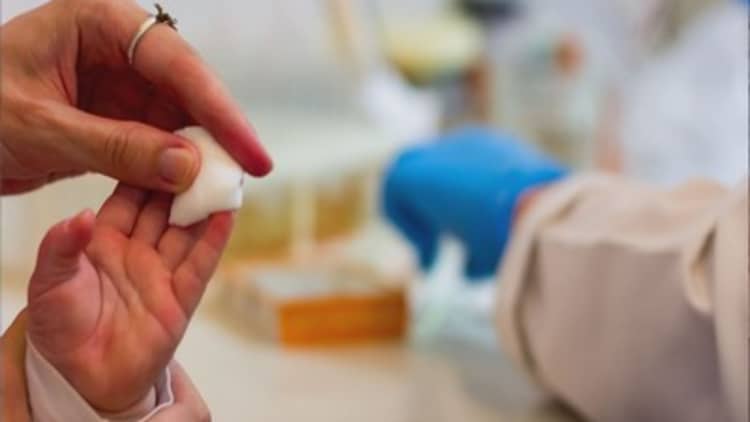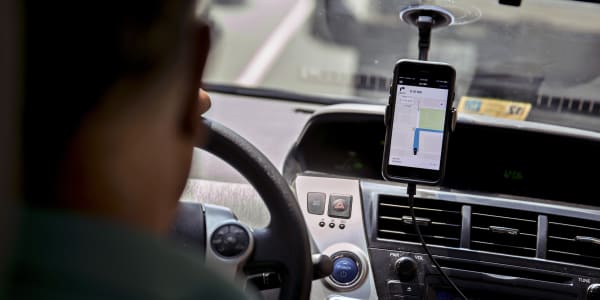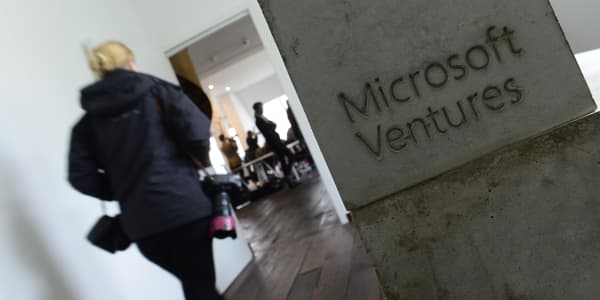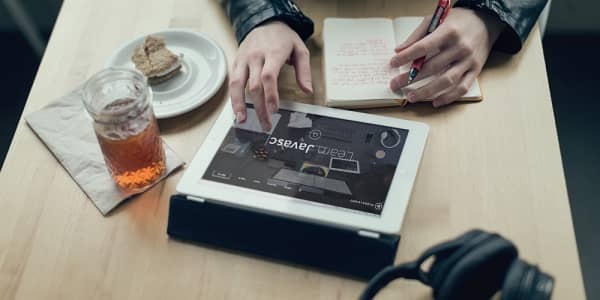Dick Costolo is trying his hand at a new role: Elder statesman. The former Twitter CEO shared some sage advice for budding entrepreneurs at the fall demo day of Stanford University's on-campus incubator Cardinal Ventures.
"Irrespective of how big your business is, once you get past the Day One," said Costolo, "life is just a constant series of fluctuations between euphoria and terror."
No doubt drawing on his experience at the helm of Twitter, his early career as co-founder and CEO of FeedBurner, a company he later sold to Google, and time as a stand-up comic, Costolo had plenty of candid advice. "You just have to understand that everyone else is going through the same thing," he said.
Life is just a constant series of fluctuations between euphoria and terror.Dick Costolo
The root of failure for most entrepreneurs?
"They get agitated, they get frantic, things zig when they thought they were going to zag and they're not calm and resolute, and that's when the businesses fail, or they don't stay true to their original passion or original choice that they have made," he said.
Costolo warned students that even the venture pitches they go into where things apparently go well, there will be conversations afterward between venture partners that go something like this: "That business model's obviously not going to work, and the other partner's going to go 'yeah, but they'll figure it out.'"
"Most of the conversations about your business model will be like going to the eye doctor — better like this, or better like this?" he said. Underlying all of this, said Costolo, is "resilience and mental fortitude. I guarantee you, that will get you through all of the rough patches."
Cardinal Ventures was founded by high-flying twin sisters Olivia and Justine Moore, both Stanford seniors majoring in economics, to help students build business plans and pitch decks, and network with Silicon Valley investors.
The program instantly attracted many more students than it could support — 60 teams were whittled down to 13 — as well as angel investors and venture capitalists, eager for an early look at cutting-edge technology, and even more importantly, to possibly meet the next Larry Page.
Annie Kadavy is a general partner at Silicon Valley juggernaut Charles River Ventures and was one of the judges of the pitch competition. A former Stanford student herself, she said it probably would not invest in any of the teams presenting at the event — CRV mostly does Series A rounds.
"It's of huge value to me to come and meet these teams very early on and hopefully be helpful to them at the beginning of their experience, and then hopefully perhaps later down the line we could [invest]," she said.
Kadavy was one of three judges, who selected health tech start-up Athelas as the competition's winner. The fledgling student start-up aims to eliminate pointless doctor visits and expensive blood tests.

Athelas co-founder and CEO Tanay Tandon, who is still a freshman in college, said the company is often compared with well-funded but beleaguered start-up Theranos, but said his product is better.
"It's an order of magnitude lower in cost and it stays in your home or in a doctor's office. You just literally press your finger against it and within five to seven seconds you have the result on your phone, there and then as opposed to waiting for a result," he said.
Like many people, Tandon hated the inefficiency of visiting the doctor. "They would tell me 'you're probably feeling a little sick, you should take some fluids, you should take some rest,' but there was never quantification."
Being a Stanford student with an entrepreneurial streak, he decided to do something about it. "I love quantification, so in order to bring quantification into the industry I thought 'what if we could have a really rapid blood test at every single point instead of just certain appointments that would allow for a new set of quantification in terms of the doctor really knowing what's going on inside me as opposed to just I need fluids and rest?'" he said.
Athelas uses machine learning and computer vision to automatically diagnose a small finger prick sample of blood for tons of conditions like the flu, anemia, malaria, even things as serious as leukemia. The company has raised $50,000 in grant money and from other competition wins.
"We'll be looking to raise a full-blown Series A round later on in 2016, and once we have identified that first customer and gotten the final validation, start building," he said.






